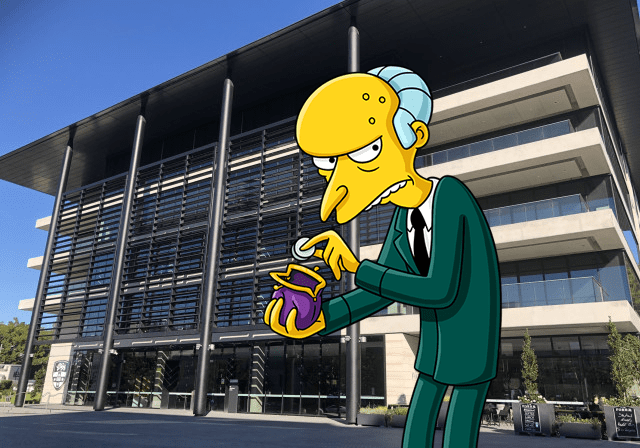In an all-staff email this morning, University of Sydney Vice-Chancellor Mark Scott admitted to wage theft of mostly casual professional employees totalling $12.75 million, following a review of payments from 2014 to 2020.
12,894 current and former staff members are to be repaid after the latest revelation of underpayment in the university sector. Over half are owed less than $500, 73% are owed less than $1,000 per person, with 5% owed more than $5,000, according to the findings of the review.
Staff were first notified that PricewaterhouseCoopers (PwC) had been engaged for the audit into underpayment on 13 August 2020. While initially the amount of underpayment was estimated to be around $9 million, the precise outcome has only now been confirmed.
Scott attributed the errors to “unclaimed overtime or minimum engagement payments – that is, incorrect gathering and reporting of information rather than automated system errors.”
The total amount of wage theft for casual professional and academic staff is likely to be much higher than the figure provided in the audit.
The University has yet to assess the extent of the systemic wage theft that is built into the piece-rate payment model, despite evidence demonstrating that academic casuals work more hours than they are contracted to perform, with most of the exploitation happening in administration.
USyd Casuals Network and NTEU member Robert Boncardo told Honi that “these kinds of back pay and the reviews that management do of payment practices to casuals, are once again, as we always say, the tip of the iceberg.”
“They never pick up on the way that the Enterprise Agreement itself enshrines forms of underpayment, that’s the more radical form of underpayment, but also the one that is, I think, more structural to the university.”
Boncardo indicated that the review demonstrates how casuals’ line managers are not necessarily inducting them properly or telling them what their rights are under the Enterprise Agreement, “taking advantage of casuals’ own lack of understanding or ignorance of what they’re entitled to.”
Critically, University management is trying to reduce the minimum number of hours staff can be employed from three to two in ongoing enterprise bargaining, which the NTEU is opposing because it would be inequitable for staff who have to travel into the city.
The majority of errors in the underpayment scandal arose from incorrect application of the existing ‘minimum engagement’ entitlement, which provides for a casual professional to be paid for three hours even when a timesheet records less than three hours worked.
Grant Wheeler, a member of the NSW Community and Public Sector Union (CPSU), which represents professional staff, criticised the University for only reviewing underpayment over the last two Enterprise Agreement-based periods.
“There is no suggestion that the systemic errors in payments to staff highlighted in the audit (95% of those errors being made in Professional staff remuneration matters) suddenly began in 2014,” Wheeler said.
“Any monies owed to those staff that resulted from University of Sydney errors prior to 2014 will be pocketed by the University despite being legitimate remuneration owed to those staff.”
Wheeler said he could see little moral difference between the results of the “so-called Employee Payment’s Review audit and those companies that received Jobkeeper payments, made large surpluses and then kept the Jobkeeper payments.”
“Where the University has failed to adequately remunerate its staff historically, it is meeting its legal obligations to recompense those staff, but is doing little more.”
“Once again the University’s response appears very much to be ‘why pay your staff correctly when legally you can get away with underpaying them?’”
Wheeler said this would affect Library staff who have been paid as ‘shift-workers’ instead of overtime payments, and lamented the University’s relationship with “long-suffering professional staff”.
The University is processing back payments for affected staff over the next six to eight weeks, and is now reviewing all payments made after the initial audit, from November 2020 onwards.
“Last week it was the University of Melbourne and today the University of Sydney. Further proof wage theft in our universities is not a one-off scandal but an ingrained crisis,” NTEU National President Dr Alison Barnes said.
Sydney Branch President of the NTEU, Patrick Brownlee, told Honi “It’s a relief to see the University has begun to address this systemic problem.”
“It would be great to see the employer do more to ensure anyone hired is fully aware of their rights. We tend to have all manner of compliance training but yet to see something mandatory about treating casual employees as equally deserving employees.”
“Casual teaching academics are largely missing in this sum … While I think the University management is beginning to understand it has a problem here as well, I am looking forward to a positive response to our back pay claims on this front.”
More to come.
Editor’s note: Updated at 5:27pm with comment from NTEU Sydney Branch President Patrick Brownlee. Further updated at 6:06pm with comment from NTEU National President Alison Barnes.





